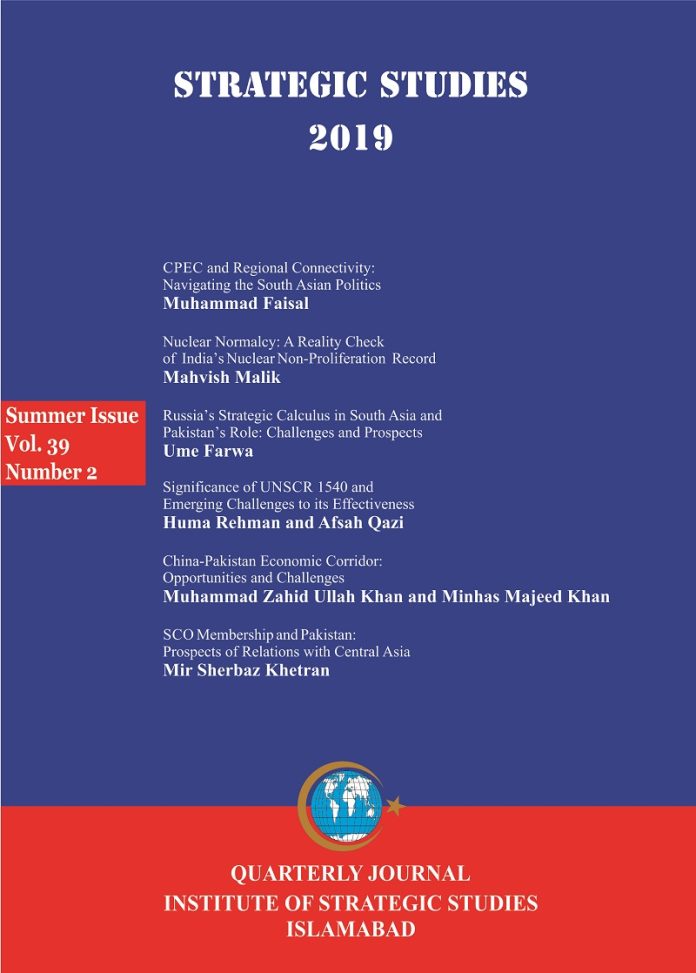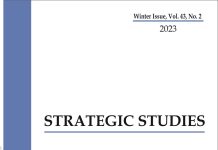Abstract
As the threat of Weapons of Mass Destruction (WMDs) proliferation and terrorism emerged in the early 21st century, the International non-proliferation regime began to face several challenges. Adopted in 2004, the United Nations Security Council Resolution (UNSCR) 1540 came as a response to such threats. The resolution makes it binding on all the UN members to institute effective checks against WMDs proliferation within their borders through international collaboration. The record of states’ compliance with the resolution is appreciable and it represents the success in standardising state behaviour by harmonising international and national export controls. However, a decade and a half later, the threat still exists and has not been tackled to the core, which is attributable largely to the evolving nature of the threat itself. To address this gap, this article suggests that it is imperative for the UNSCR 1540 to make necessary amendments and revisions to its mandate and mechanisms if it aims to retain its relevance.













